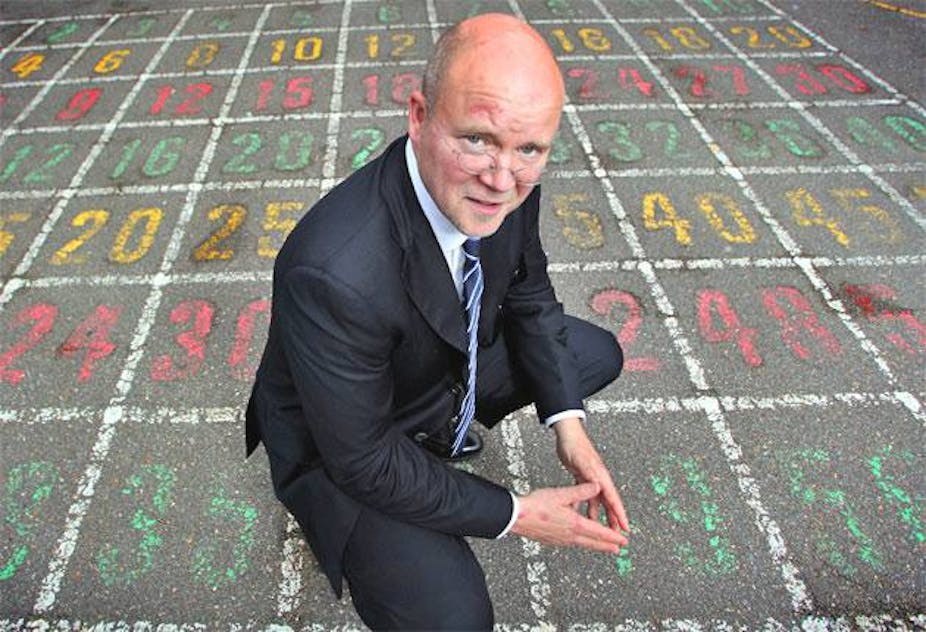Since Toby Young’s appointment to the government’s new higher education watchdog – the Office for Students – critics have trawled through his past for evidence of unsuitability for the role.
Included in a catalogue of offensive tweets and choice quotes is an article written by Young in 2015, titled The Fall of the Meritocracy. In the article Young takes issue with past attempts to secure social mobility through heavy state intervention. He adopts the classic liberal argument that state intervention should be strictly limited or it becomes coercive.
The only way of encouraging social mobility in a liberal society – a society that values freedom – is to give individuals the power to drive their own upward mobility. Young’s solution: give parents with low IQs the tools to increase the intelligence of their offspring.
Young’s argument
The word “meritocracy” was famously coined by Young’s father as a dystopian term, but Young himself uses it in the positive sense. This is the idea that a just society is one that rewards ability and effort, rather than patronage – the influence of social connections.
In his argument, Young claims that a degree of social mobility is necessary to ensure that an unequal society remains palatable to those who suffer it most. If social divisions were relatively fixed, those at the bottom of the pile would be more likely to revolt.

Meritocracy can nonetheless endanger itself, Young argues, and needs to be protected. Here he makes the highly controversial claim that meritocratic selection is reorganising class boundaries according to IQ. From Young’s perspective, this is a problem for social stability.
For many on the left – the so called “twitchfork mob” in Young’s terms – he will have already said enough to place himself on the wrong side of history. But he goes further, arguing for a revival of eugenics – the widely discredited science of selective breeding.
He imagines a type of “progressive eugenics” that would “discriminate in favour of the disadvantaged”. It would do so by offering a form of (as yet unavailable) embryo intelligence screening, “free of charge to parents on low incomes with below-average IQs”. This would help reverse the otherwise “inevitable” consolidation of each social class around a similar genetic profile.
Confronting eugenics
There is much one might take issue with in Young’s argument. For a start on the topic of meritocracy, there is sociologist Jo Littler’s recent claim that meritocracy scarcely exists. She describes it as:
The great delusion that ingrains inequality.
In other words, meritocracy only functions to offer ideological cover for plutocracy – or government by the wealthy. That is to say, it functions as a dominant social ideal, providing cover for exactly the kind of government that has promoted Young to a position of power. More simply put, Young’s argument about a cognitive elite seems odd to those who feel that there are already too many fools in power.
Young’s accompanying argument, that meritocracy can only be saved by eugenics, will strike many as almost too offensive to warrant reply. But this risks denying the long association between 20th-century efforts to establish meritocracy, and the late 19th and early 20th-century science of eugenics.

In my book Benign Violence, I explain how eugenic thinkers were key players in the developing sciences of psychometric (intelligence) testing and statistics. Operating together, these scientific fields of investigation provided the intellectual and political framework within which all debate relating to, and all efforts attempting to secure meritocracy, played out.
Eugenics is nonetheless generally treated as an example of “bad science”. It is also associated with the operations of an overbearing state, and the excessive, overweening aspirations of the social engineer and scientist who “plays God” with the lives of others. The ultimate destination of eugenic science was the holocaust.
Eugenic continuities
Without wishing to downplay the totalitarian associations of eugenic science, its first proponents also imagined a more “progressive” version. They hoped it would become a kind of secular religion, or moral framework, to regulate social behaviour in liberal society.
Its most famous, and derided proponent, Francis Galton, argued that eugenics would only succeed if it became the commonsense of the age. Arguably, this is precisely what happened with the associated ideal of meritocracy.

The history of meritocracy is the story of a social ideal that became so dominant it no longer needed much institutional support. It became an ethos of personal striving, rather than a regulating idea that state interventions would be measured against.
Like Littler, I too believe that meritocracy no longer functions on a principle of fairness. It operates through the exploitation of hope, staging an aspirational drama where we are asked to negotiate our dreams against an upper limit of survivable self-delusion.
This is the kind of system that will reward someone like Young, who is distinguished not by institutionally accredited indicators of merit and suitability, but by his ability to ingratiate himself to power. Young’s much derided appointment is then, entirely symptomatic of meritocracy in its current form.

